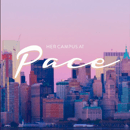Name: Dr. Emily Bent
Department: Women and Gender Studies
Hometown: Lafayette, New Jersey
You are the Co-Founder of International Day of the Girl Summit, which began in 2012. International Day of the Girl Child is an international observance day declared by the United Nations. Why was it important to create this summit? “I’ve been apart maybe 11 or 12 years or so working with them and one of the things Working Group on Girls does is advancing the rights of girls globally but also bringing girls to the United Nations who represent themselves and their communities. Working with other organizations brings perspective but when International Day of the Girl was declared, I was brainstorming with one of my other colleagues about how could we make this a day where it has some kind of meaning for girls in their everyday lives? We had been talking about organizing a summit and a part of that was having girls speak out at the U.N. and this year was the fourth year that we brought that event to the U.N.”
How has the experience been so far? “We partner with the governments of Canada, Peru, and Turkey and they actually reserve space a space at the U.N. You have to be a member state to reserve a space. We thought about what the message is that we want international world leaders to know about girls, especially over the past couple years there has been reports. For us, we wanted to say yes, we want them to be counted but their also already active and doing things in their communities. They have great ideas and they don’t just become significant once they turn 18. That was our original idea behind it for girls speaking back, speaking out about issues concerning them or the ways they were addressing issues in their communities.”
For someone who hasn’t been to the UN, what’s that feeling like when you’re there? “The U.N. itself is kind of an inspiring and intimidating space at the same time because it is a space where global leaders are getting together and making these huge decisions that are impacting people all over the world. There’s certainly an awe and respect that when you are in the building, you definitely feel. The day to day is assorted on your entry point in there. The Commission on the Status of Women that is an event that happens every year for two weeks you and it’s largely non profit originations from all around the world that are focused on women’s rights coming to the U.N. to achieve with global leaders. Depending on what meeting you’re in or what room you’re in the U.N., it can feel pretty radical with N.G.O’s who have a similar kind of mission. But if you are meeting with member states and trying to convince them on particular language that needs to be changed, it can feel very formal. It can also be very exhausting and every emotion in between.”
How would you suggest young women get involved in social change? “There are so many non profits out there and are very interested in working with young people. There is always an internship available. I know a lot of Pace students intern with Girl Be Heard, which is the theater, meets political activism group. There’s also groups like the Bella Abzug Leadership Institute, which is based in New York City that does leadership training for high school girls, but they tend to engage a lot of college women to serve as mentors and partners for the girls. People can get involved in the Working Group on Girls, if they are interested in that if they are interested in seeing the U.N. side. If it’s women’s rights issues there is a host of New York City organizations such as New York City Now for politics. New York City based Planned Parenthood if they are interested in women’s reproductive rights. There is Hollaback! to talk about street harassment and sexual violence. Whatever topic you are interested in, you can probably find a nonprofit anywhere in the area.”
Besides being a vocal and active member fighting for girls and women’s rights, are there any other hobbies you enjoy that your students wouldn’t know about? “I think I have a deep pop culture problem. I absolutely love movies, TV; Hulu is like my best friend. Outside of my research area, the only thing I read is what I would call ‘feminist science fiction’. They always have a female character at the center of them and existing in another world, whether it’s outer space or where aliens actually exist. I like fantasy because in everyday life, you’re dealing with these difficult topics so when I’m not dealing with that, I want to be transported to another world.”
Is there a specific book that you would recommend to get started in that genre? “The Black Jewels trilogy by Anne Bishop”

